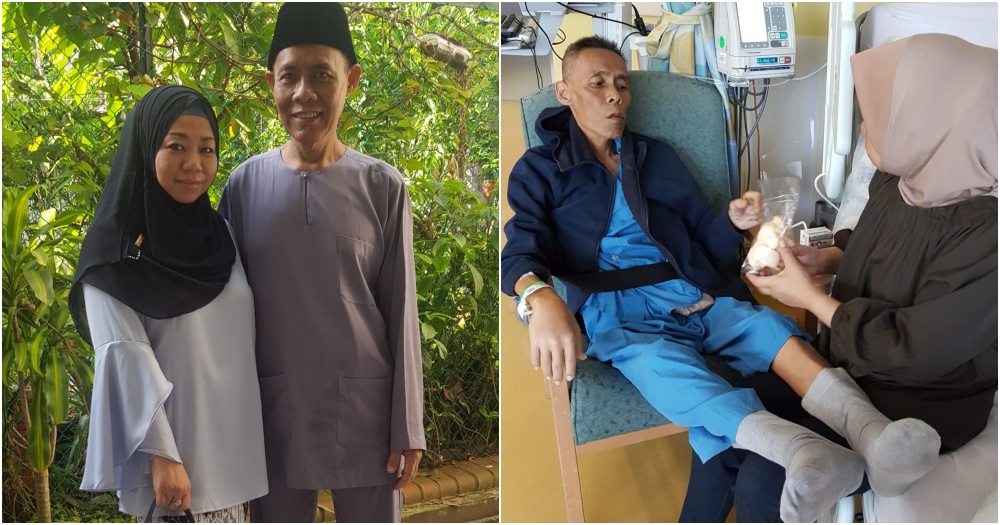Follow us on Telegram for the latest updates: https://t.me/mothershipsg
PERSPECTIVE: "My husband’s death has opened my eyes to what life is really all about."
Singaporean couple Harlina and Abdul Kadir lived a relatively normal life, having been married for 27 years with a son and a daughter.
But in April 2017, their lives were turned upside down when Kadir was diagnosed with stage four colon cancer.
Seven months later on Nov. 1, 2017, Kadir passed away. He was 56 years old.
It has now been five years since Harlina lost her husband.
Speaking to Mothership, she shares what it was like to take care of her sick husband whilst working full time, how she dealt with the grief, and what she has learned about life since then.
As told to Syahindah Ishak
People always ask me, "When do you stop grieving?"
The truth is you will never stop. There is no deadline for grief.
I will still cry when I come across his pictures. Sometimes I'll watch a movie and I'll get reminded of him.
On days like his birthday, our children's birthdays, and most recently, my son's marriage ceremony, my tears will automatically flow because he’s missing and he’s not here to share all the memories we're building.
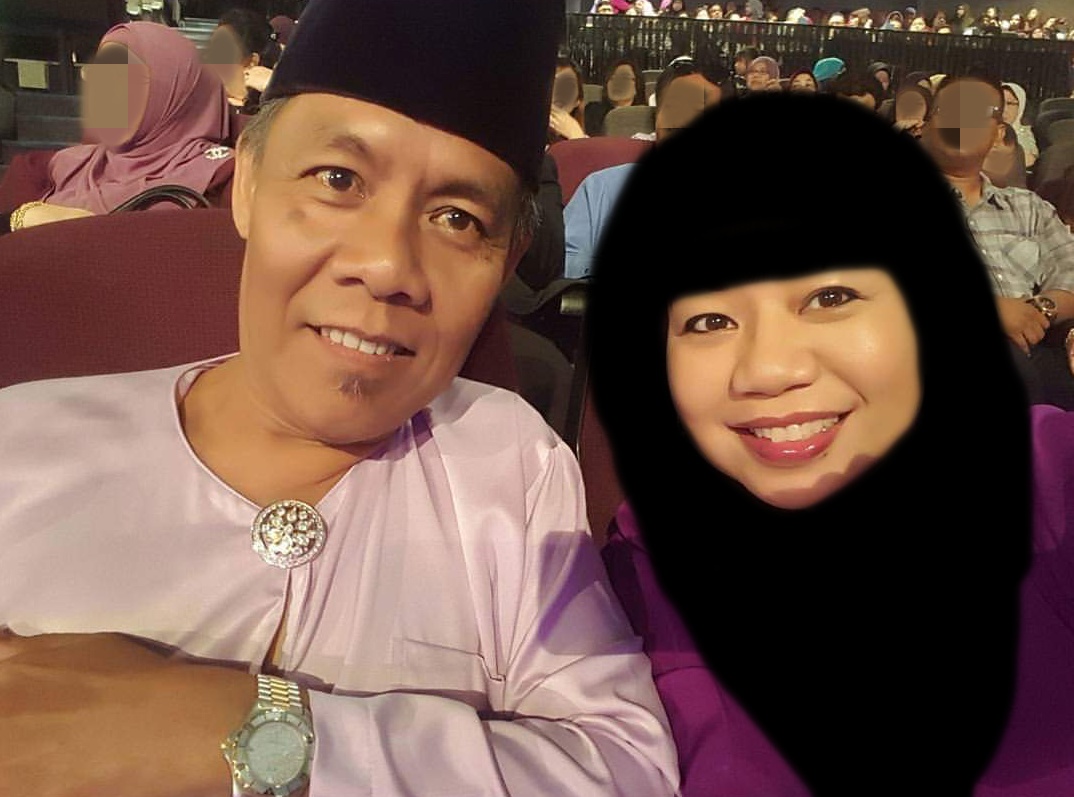
Even though I cry when I talk about him, that doesn't mean that I haven't accepted he's gone.
The seven months after he was diagnosed was precious time that God gave me.
I had the chance to be with him all the way till the end.
My husband’s death has opened my eyes to what life is really all about.
What have you learnt?
Death is unavoidable.
Everyone knows that we will all die one day, but we keep forgetting it. We keep chasing material things in this world.
When my husband passed away, I remember looking at his stuff in the house — his shoes, his bags and all. You can't bring those things with you to the grave.
So I realised what is truly important in life is the good deeds that you do, and the memories you leave behind.
Having seen death in front of my own eyes, it changed my life completely.
I started asking myself, "Am I ready to face death? What good have I done in this world?"
And I realised that I wanted to be better. So I started thinking about how I can be more forgiving, how I can contribute more good to the world, and how I can help others.
From there, I decided to change my lifestyle.
What did you do?
Once my husband passed away, I observed the iddah period strictly.
(In Islam, the iddah is a waiting period that a Muslim woman observes after the death of her husband or after a divorce. The waiting period of a widow is four months and 10 days. During this period, the woman is obliged to mourn for her husband, and not marry another man. She must also remain in her house till the completion of the iddah unless there is an emergency relating to basic needs or illness.)
I quit my job. For those four months and 10 days, I remained at home.
I know that in this day and age, it sounds crazy. Most people would not understand why I made these choices, and I don’t blame them.
But I speak for myself lah.
And don't get me wrong, I loved my job. I was extremely passionate about it. I was working as a public relations manager at the time.
But back when my husband was still around and healthy, I was working 24/7. I worked non-stop like a crazy person.
Work, work, work. Nothing else. My life was just work.
I didn't want that life anymore, so I tendered my resignation.
Now, I appreciate all the time I have to do what I want, to see my children grow, to see and do what truly matters.
Didn't you feel worried or scared? How did you sustain yourself and your kids?
I told myself to just leave everything in God’s hands.
I decided that I wouldn't plan anything. I would just have faith, and see what happens.
And you know what? After I quit my job, I suddenly received letters and bank statements. My husband had savings and investments that I didn't even know existed.
So thank God, things worked out. Till today, I'm still not working.
It’s hard to explain it, and I understand that not everyone will understand. That's okay.
During the iddah period, I rediscovered my faith. I learnt everything about my religion all over again, like I was a revert.
It made me stronger. I became a lot calmer, and I was able to process my grief.
You know, I used to be a perfectionist, someone who plans every single day with attention to the smallest details.
But now, I would just have faith and trust that God will take care of things.
If you went through the death of a loved one, you will not be the same person you were before.
Can you talk a bit more about when your husband was first diagnosed with cancer? Did he show any symptoms?
Actually, when he was 48 years old, he had a stroke. To be honest with you, this was as challenging as when he had cancer.
A blood vessel had burst in his brain. It left him half-paralysed. He was in the ICU for three days.
And then he lost his memory — he could not recognise us initially. He was put on medication and it took six months to recover.
I did therapy with him, and I exercised with him regularly until he recovered.
It was a difficult period, but we managed to get through it together.
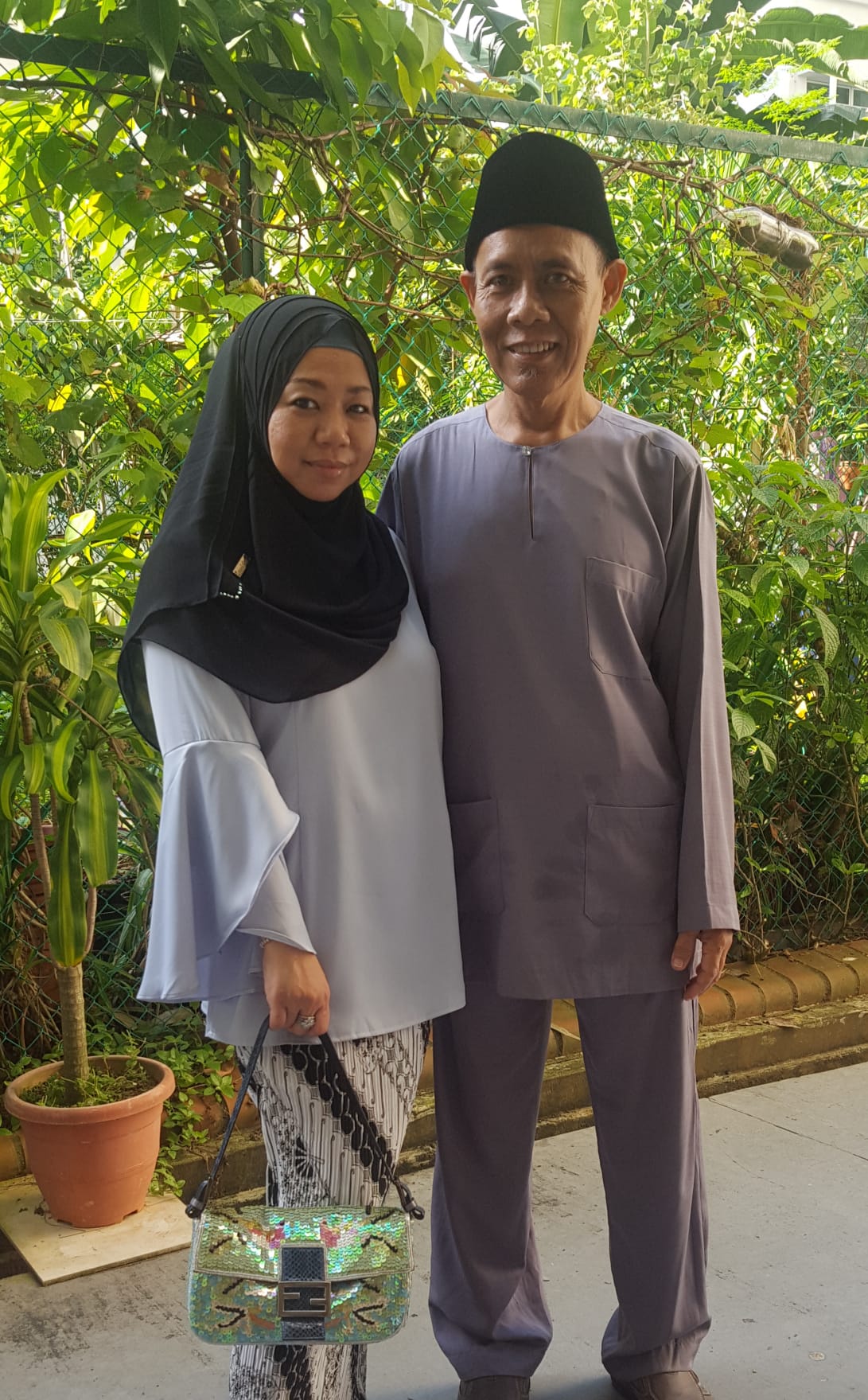
Then in 2017, when he was 56, I noticed something was not right because at night he kept going to the toilet.
He would wake up multiple times at night to go to the toilet, and his stool was liquid.
Then I saw him go through tremendous weight loss without exercising or anything. He also lost his appetite, so I started to get worried.
I told him to explain what he was experiencing to the doctor in his next medical check-up.
When he did that, the doctor sent him for a scan, and we went through a number of tests.
Then, we met the doctor again and he told us that my husband was diagnosed with colon cancer. Stage four.
And colon cancer... honestly I think that it is one of the worst types of cancer someone can get.
Why do you say so?
Basically there's a tumour in his colon, and this tumour disrupts him from passing motion properly.
Because of that, the doctors had to operate on him and make a hole in his large intestine. Once he was operated on, his waste would come out and be collected in a bag.
So I think it's one of the worst types of cancer because we're dealing with faecal matter.
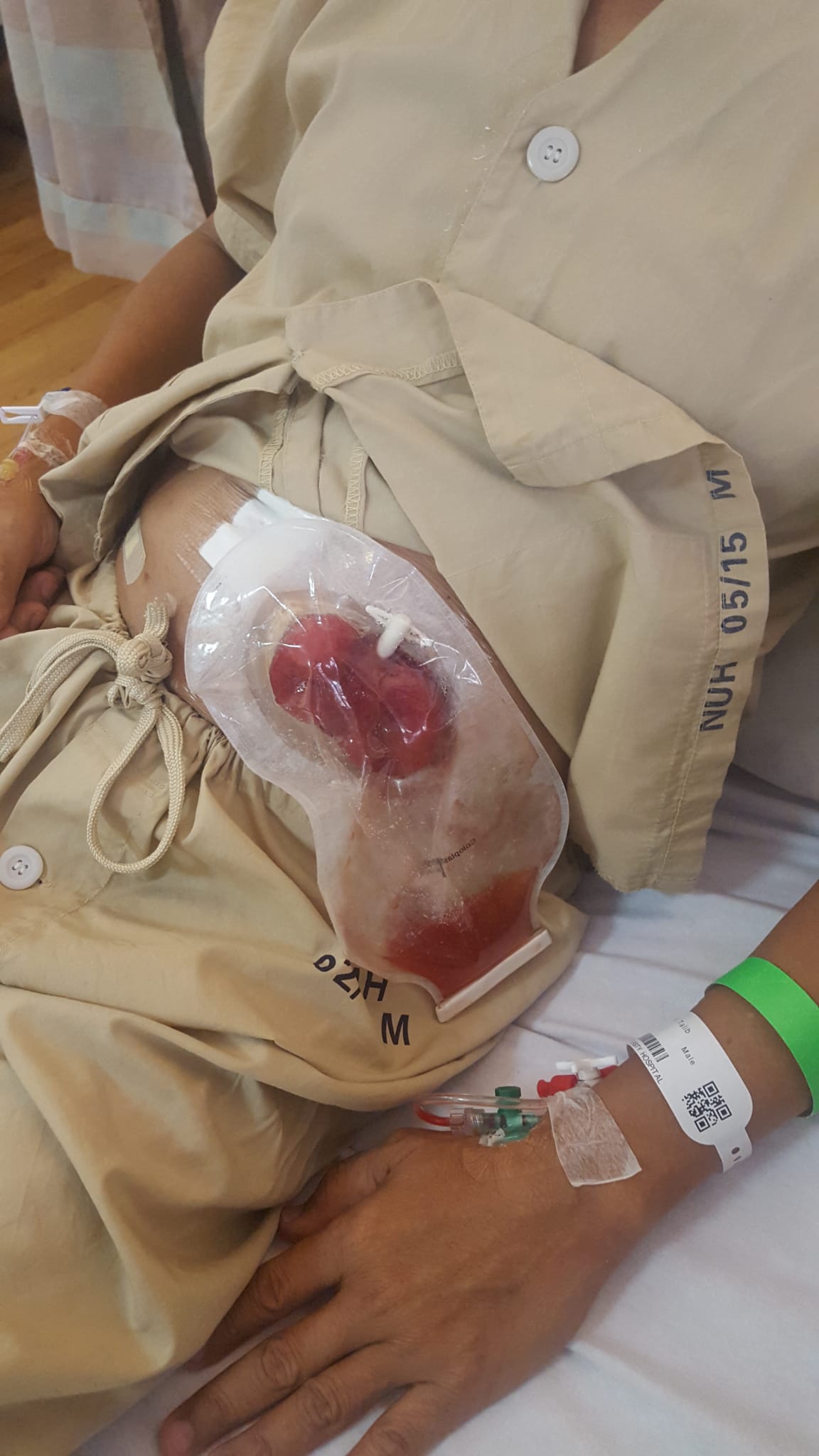
After his operation, he could not work anymore and I became his caregiver.
It was so scary, you know? I had to Google and read up about colon cancer.
My entire lifestyle changed. It affected everything.
At that time, I was still working full time. But I requested from my boss to work from home so that I could take care of my husband.
Can you share more about your experience as his caregiver?
I cried every day. Every day.
It was so taxing.
I was completely shut off from the world by then. My life was just him. I was with him 24/7. Nothing else mattered.
At that time, my son was doing his NS and my daughter was still studying. I let them do what they had to do, and I just focused on my husband.
So can you imagine what it was like?
Within a short period of time, I had to transform into a nurse. I used to say that I'm a "nurse without qualifications".
I had to learn how to clean my husband, clean his intestine area.
I had to clean it every day because if I didn't, his waste would accumulate and spill out.
I tell you... this was one of the biggest tests for me.
I would clean his intestine area while crying because it was such a difficult task. And the smell... can you imagine?
I used to think to myself: "Out of all the sickness that God gave him, why this one?"
There was one particular day... I call it the taik (a Malay slang term meaning "sh*t") day.
My husband's faeces came out and spilled on the floor. I also had two cats in my house by the way. Both of them also decided to defecate at the same time at different areas. The entire house smelled so bad.
Both of my children were not at home.
So can you imagine how stressful and overwhelming it was for me? I completely broke down.
I cried and cried and cried.
While crying, I put on gloves and a face mask. And while crying, I cleaned my husband. I remember saying out loud, "Why must I do all this?"
My husband cried with me.
In the end, it took me about four to five hours to clean my husband, the cats, and my house.
That will always be the taik day for me.
How did you cope when his condition worsened?
For the first four months after he was diagnosed, my husband could still walk. But subsequently, he became weaker and weaker.
He did not go through chemotherapy by the way. It was a personal choice that he and I both decided.
We did not want him to be in more pain, and we were also afraid that chemo would take away his energy and make him feel worse. You know, chemo can be mentally challenging to some patients.
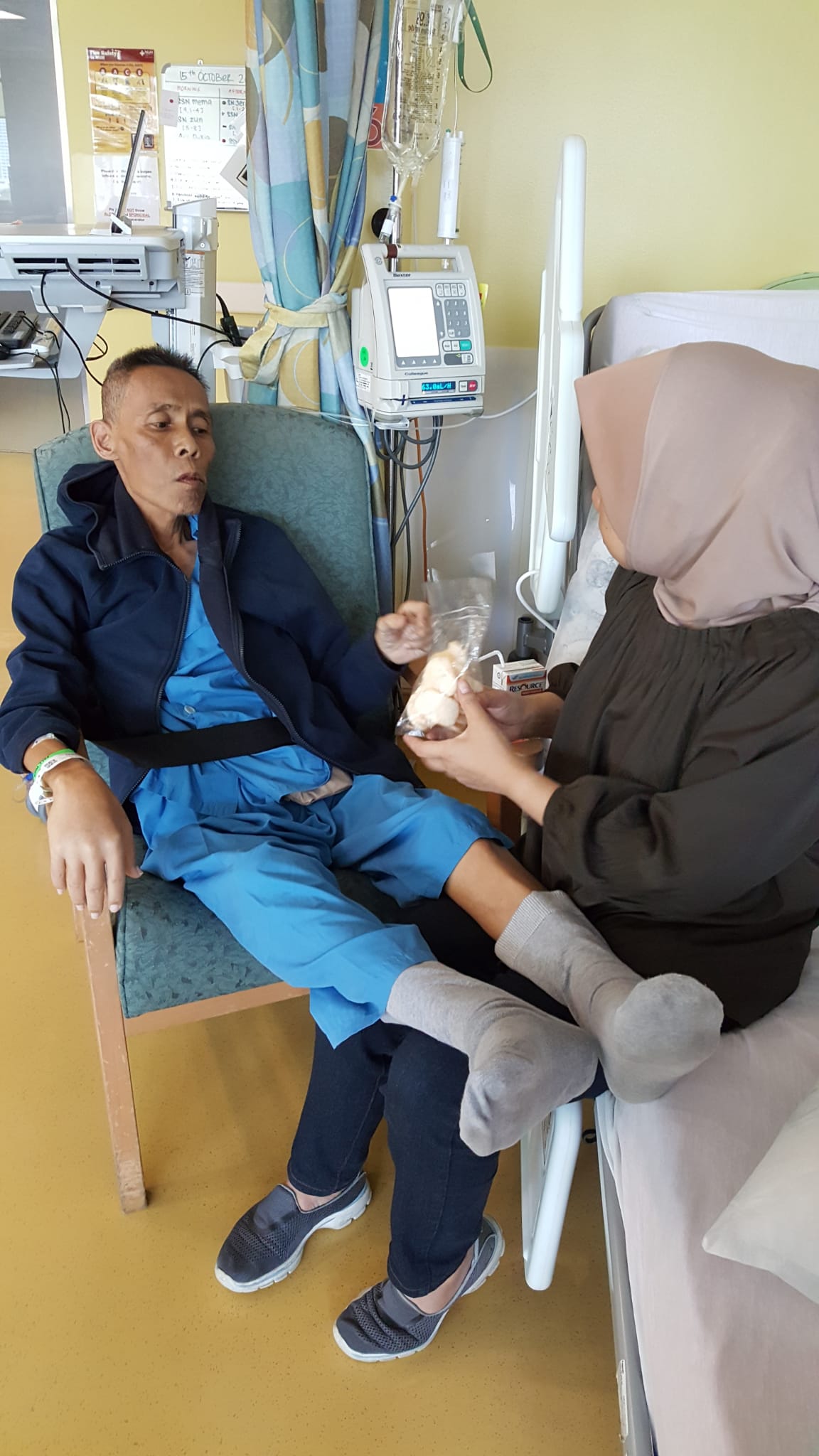
Anyway, as his condition worsened, we had to go in and out of the hospital frequently. If he had a fever, he would be warded for three to four days. If he fell down also, he would need to be warded.
Being in the hospital was another challenge for me.
Firstly, many visitors came and went. Some said things that weren't so nice.
There were people who blamed me for not taking better care of my husband, for not giving him the right food lah... things like that.
On top of this, I was still working. So sometimes, I would have to run around the hospital with my laptop trying to get a Wi-Fi connection and a quiet place to do my work. I also had to answer calls from clients while being in the hospital.
It was tough.
How did your husband react when he saw you struggling?
My husband never ever complained. He would be patient and he would tell me to settle my work or our house chores first before attending to him.
If he was in pain, he never told me. He would constantly thank me for taking care of him. Sometimes, he would cry with me too.
I remember a few weeks before he passed away, when we were at home, my husband and I had a heart-to-heart talk.
We said all the things we've always wanted to say to each other.
He told me that he forgave any mistake I had ever made and he said he was very grateful that I was still by his side taking care of him.
I remember crying and asking him, "What happens if I'm sick? Who will take care of me?”
He told me, "Don't worry, our children will take care of you."
Even then, he was still comforting me. That's how kind he was.
So whenever things got tough for me, I would remind myself that if I was in his position, he would do the same for me.
Did you receive any help?
I had a good social worker. She constantly checked on me and made sure I was okay, made sure I was sane.
I broke down in front of her a lot. There were many days where I told her, "I can't do it."
But she would always encourage me.
She arranged for a male nurse to come to my house for me. The nurse would come over at 8am in the morning and leave at 8pm. This helped a lot because I could get a breather. I could go out to buy groceries, and stuff like that.
The nurse was so good, he was really helpful. He treated my husband like his own father. He was a very young nurse, in his twenties.
He was very on the ball, he would come on time every day. He would also bring my husband out with the wheelchair and all.
He joined us on birthdays and celebrations. I remember thinking to myself, "God sent me such a caring person".
Besides my social worker and the nurse, my husband also went to a daycare centre. It only lasted for a week because he was hospitalised again.
But at the centre, there were other caregivers. I could talk to them and also get tips on how to take care of my husband.
This centre had a lot of activities for the patients, like arts and crafts.
I remember my husband drawing a flower for me.
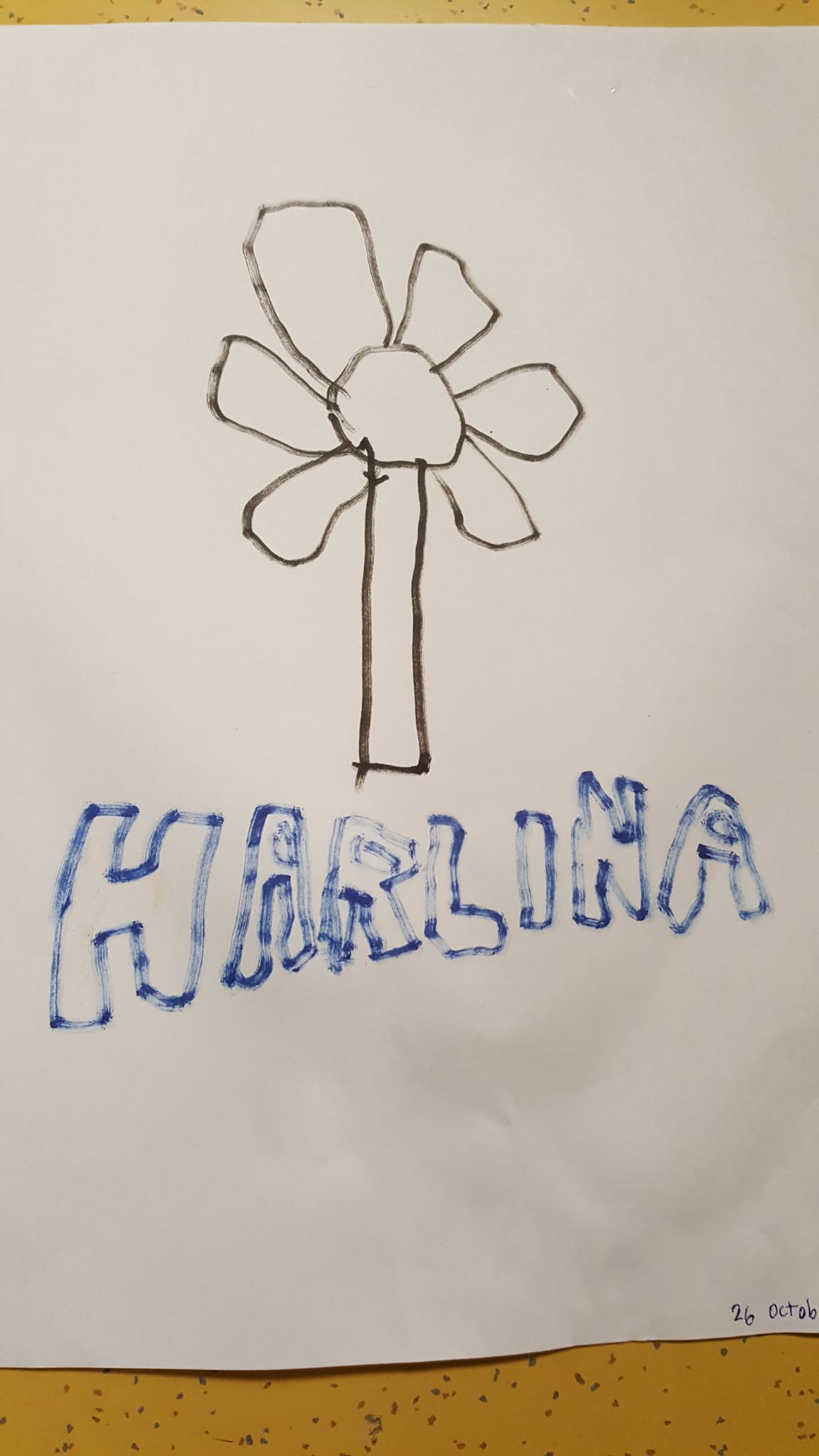
I think if there is anyone out there who is going through what I went through, just know that you're not alone.
Don't ever be ashamed or afraid of getting help. This is very important.
As you are helping someone else, remember to also seek help for yourself, and surround yourself with good people.
If not, you will go insane.
Can you share what it was like on the day your husband passed away?
It happened in the hospital.
On that day, the doctor told me that he would go anytime now because his breathing was getting weaker and weaker.
At that point, he couldn't talk. He also couldn't eat anymore. He had no appetite, and he was very weak. He drifted in and out of sleep.
Because he couldn't really talk, we used our hands to communicate. He could hear me, and he would squeeze my hand to acknowledge what I said to him.
I was in the hospital the entire day. At night, I wanted to go back home to shower and settle some stuff.
Before I went home, I whispered to him, “Wait for me. Don't go yet." And he squeezed my hand.
I reached the hospital again at around midnight.
I held his hand and whispered to him, "I'm here." He squeezed my hand.
But the nurse later told me that his breathing was very low, which meant that any moment he could go.
I was crying. I held his hand and I told him, "If you have to go, just go." I also told him not to worry about our children.
I prayed to God and said, that if it was time for him to go, I would accept it.
At three in the morning, I was still holding his hand and next thing we knew, his breathing was getting weaker and weaker.
I changed his diapers and cleaned him. After that was settled, minutes later, he was gone.
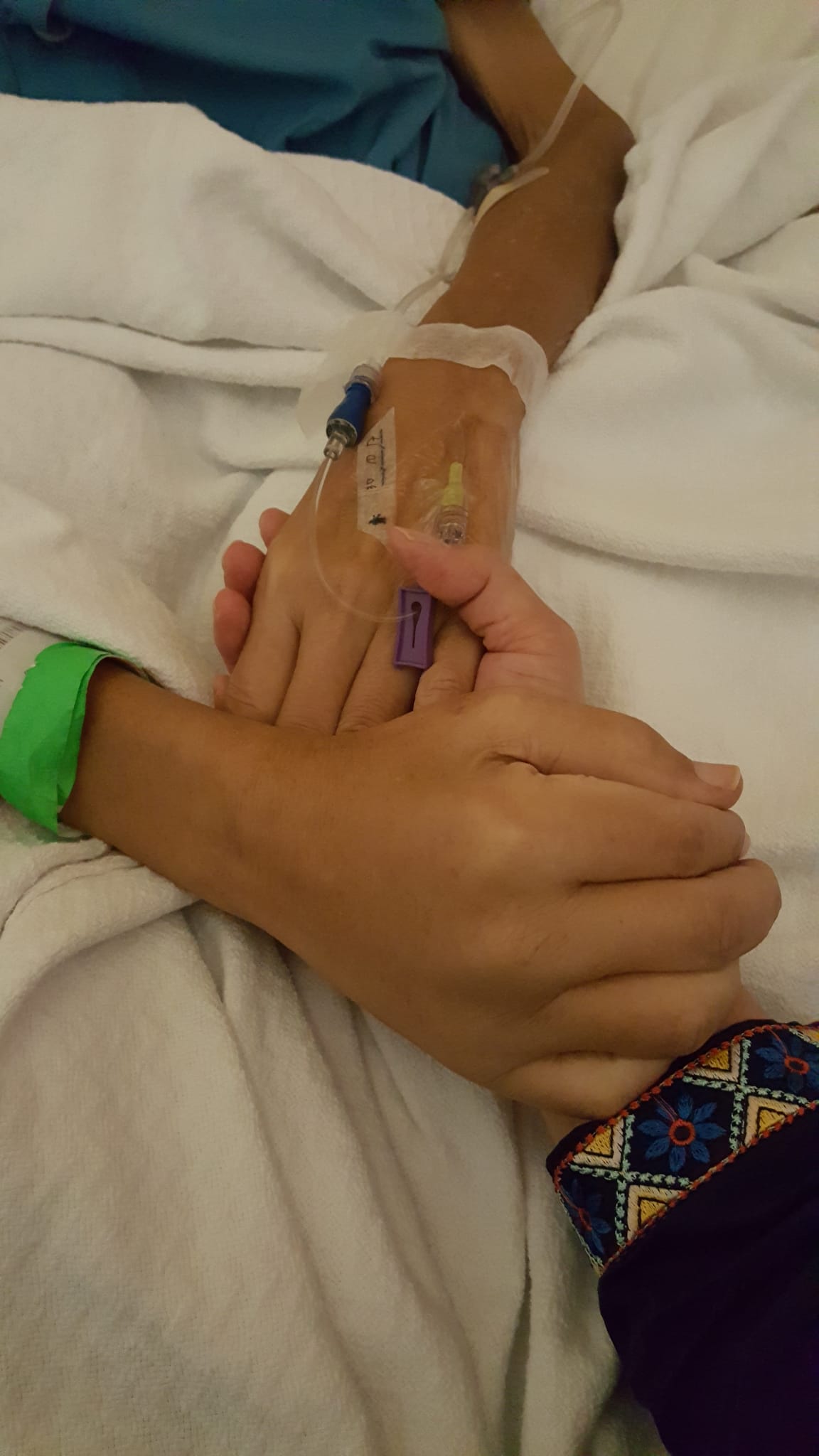
I was very calm, I accepted what had happened.
And I knew that I had a good moment with him— both of us holding hands, by each other’s side.
How did your children cope with the loss of their father?
My children grieved in their own ways, and I let them grieve in a way that they are comfortable. I give them the space they need. If I see them cry, I know they miss their father. I won't disturb.
I would tell them, "Just cry if you need to cry".
We all cry, of course we do. We went through a death in the family. It’s very natural to cry.
The memories of him are always around, it’s just that he's not there. But he will always come up in conservations. Like during Hari Raya, when we eat some dishes, someone will say, "This was his favourite food."
What is something about him that you'll always remember?
Everything.
But one thing I really miss is his ironing.
My 27 years with him... he would iron my clothes for me every single day without fail.
He would ensure that my clothes were ironed, so that I would look good the next day.
That's how kind he was. He would always try to make my life easier.
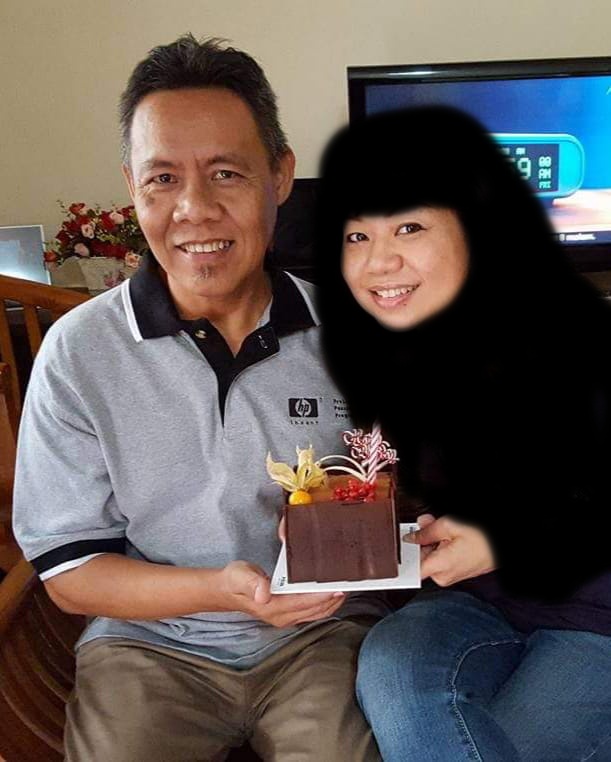
Have you ever thought of finding love again?
People always ask me if I want to get married again.
My answer is simple: I leave it to God.
And I also believe that if there is a man who will come into my life, he will have to be better than my husband. Then I might think about it.
If your husband is still around today, what would you like to say to him?
Nothing. I would just be grateful he's by my side.
All images courtesy of Harlina. The interview was conducted in Malay and English. Some quotes were edited for clarity.
If you like what you read, follow us on Facebook, Instagram, Twitter and Telegram to get the latest updates.
